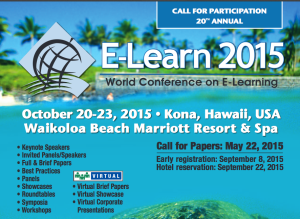Let’s Talk About Flipping: An Interview With Matt Osment
Lately, flipping the classroom has become an educational imperative on many campuses.
Flipped learning reverses the traditional classroom approach to teaching and learning. It moves direct instruction into the learner’s own space. At home, or in individual study time, students watch video lectures that offer them opportunities to work at their own pace, pausing to make notes where necessary. This allows time in class to be spent on activities that exercise critical thinking, with the teacher guiding students in creative exploration of the topics they are studying. Flipped learning is sometimes seen simply as a different approach to delivering content. It also offers opportunities for the classroom to become a more flexible environment, where the physical layout can be shifted to enable group work, where students can make use of their own devices, and where new approaches to learning and assessment are put into practice.
2014 Innovating Pedagogy Report

The flipped classroom becomes a space for dynamic, interactive learning. (Image source:
Ffion Atkinson, flickr commons)
Flipped Classroom Workshop at E-Learn 2014 – Meet Presenter Matt Osment
To free-up class time for active learning and group work, students need to process content outside of class. Effective instructional videos thus become a central ingredient of flipping. At E-Learn 2014, Matt Osment from the UNC Center for Faculty Excellence addressed the needs of instructional designers and faculty with a workshop on video production for the flipped classroom. Approximately 25 participants spent an afternoon learning the ins and outs of conceptualizing, planning, recording, producing, distributing, sharing and reusing videos for educational purposes.
When you go to conferences such as E-Learn or SITE, do you take advantage of the many workshops that are offered or do you simply attend presentations of papers? Hopefully you already take advantage of the many parts of an academic conference, but if you aren’t familiar with how workshops run and are organized, this interview will give you insight in what some of the many benefits are to attending a workshop.
[youtube https://www.youtube.com/watch?v=SYQFJOA6x5M]

Matt Osment is an instructional designer at the University of North Carolina, Center for Faculty Excellence. His background includes technology curriculum development and instruction for the Adult Technology Education Center and Teen Computer Clubhouse at Boston’s Harriet Tubman House; e-Media project management for Harcourt publishing; and instructional design for St. Edward’s University in Austin, Texas, Master of Advanced Oncology online for Universität Ulm, Germany, and Master of Public Administration online for UNC’s School of Government.
Thinking about offering a workshop? Aloha Kona!
- You can access the E-Learn 2014 proceedings through the EditLib Digital Library. Please check to see if you library subscribes.
- If you want to follow up on keynotes and invited talks, see the AACE YouTube channel.
- This year’s E-Learn will take place in Kona, Hawaii. Check out the Call for Papers!

